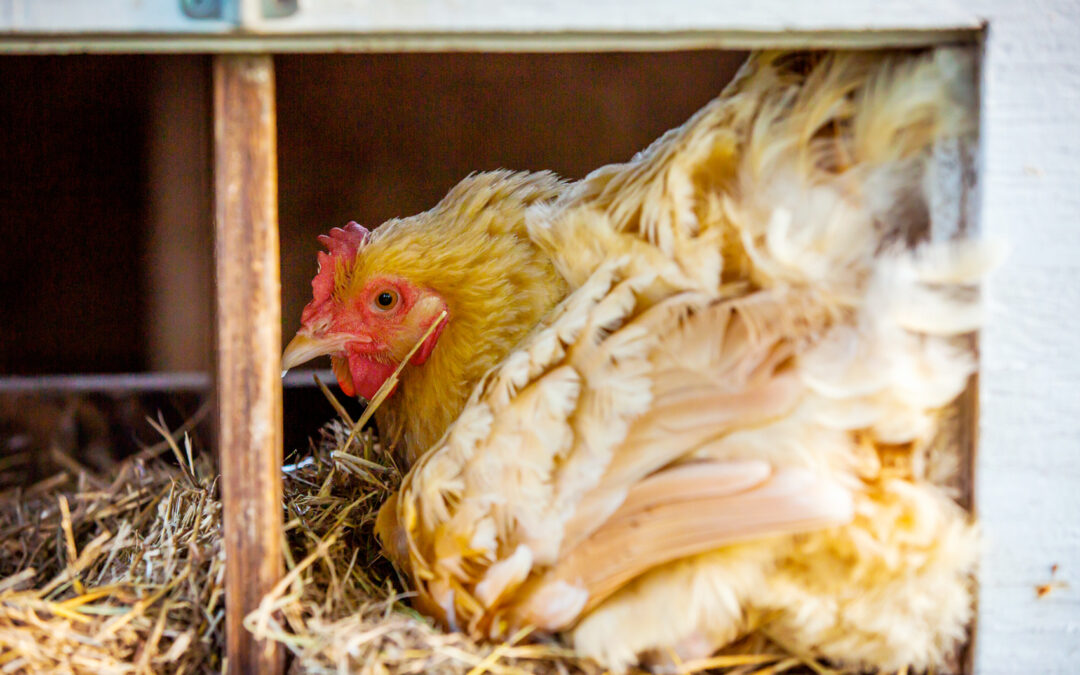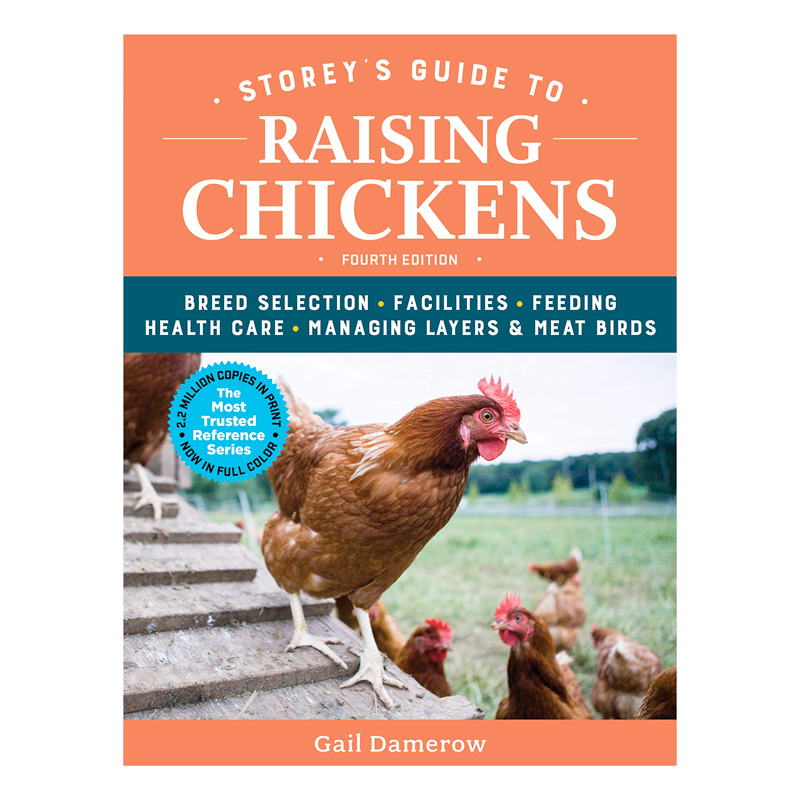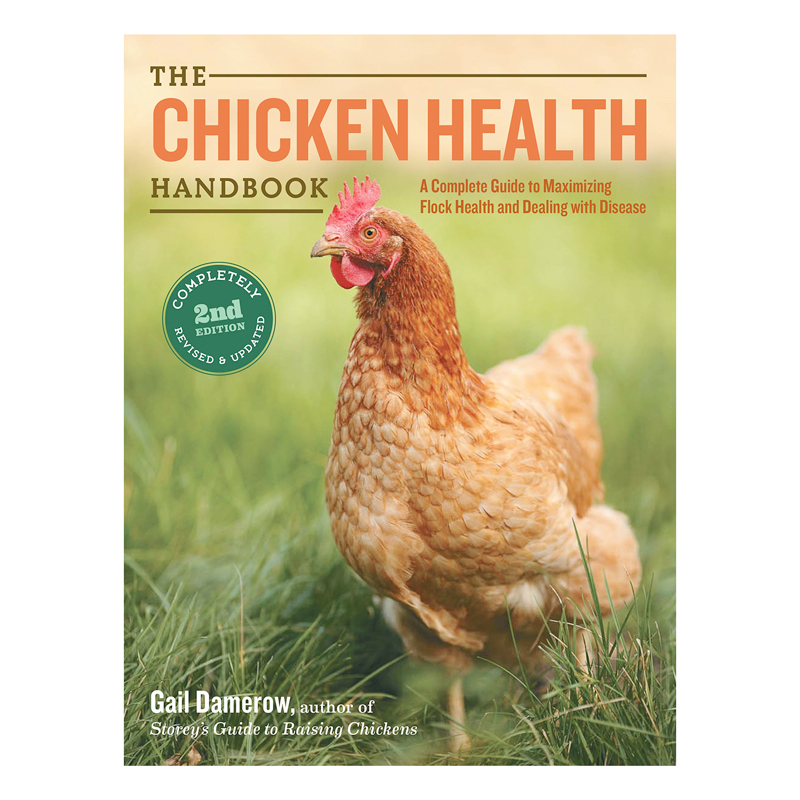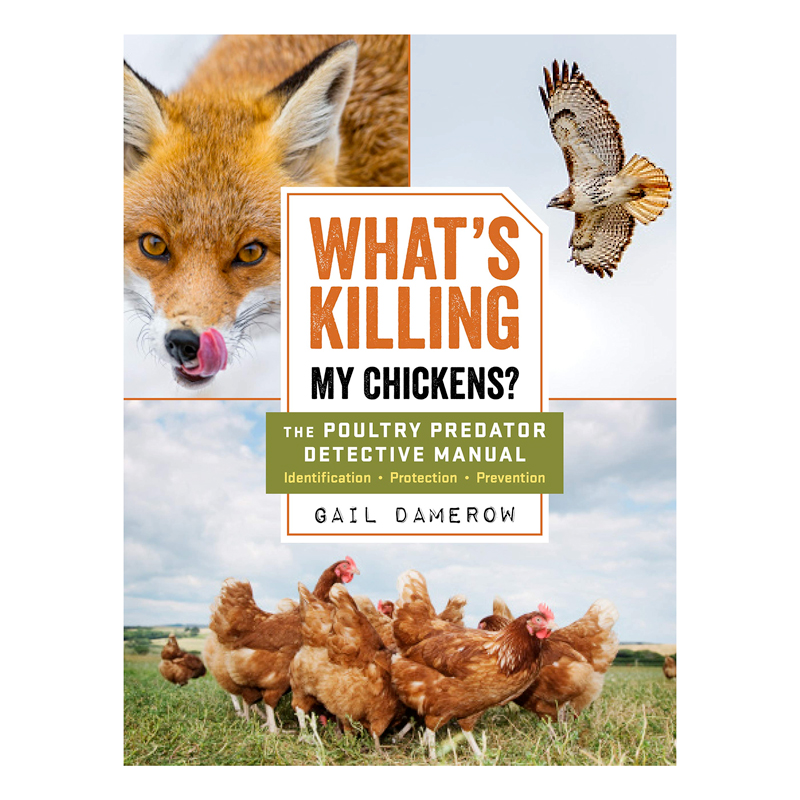Snuggling down on a nest of eggs until they hatch is a hen’s way of making more chickens. A hen that has decided to become a mother is called a broody hen. Continuing our interview series with poultry expert and best-selling author, Gail Damerow, we ask her about broody hens.
How can you tell a hen is broody?
“The instinct to hatch eggs is triggered by increasing day length,” Ms. Damerow says. “So hens are most likely to become broody during spring.
“A broody hen puffs out her feathers and pecks, hisses, or growls when disturbed on the nest — for instance if you reach under her to retrieve eggs. She stays on the nest night and day, except for brief forays to grab a snack and release the enormous broody poop she’s been holding to avoid soiling the nest. While she’s off the nest she may sound the distinctive ‘cluck’ of a mother hen with chicks.”
Does every hen get broody?
“Not every hen is inclined to brood,” Ms. Damerow states. “Hens of some breeds, such as production Leghorns, rarely brood. Hens of some other breeds, notably Cochins and Silkies, seem to want to brood all the time. Most breeds lie somewhere in between, with some individuals tending toward broodiness and others having no interest at all in motherhood.
“As a general guideline, the more eggs you can expect from your chosen breed, the less likely your hens are to brood. Conversely, the fewer eggs you can expect from your hens, the more likely they are to brood. Some chicken keepers prefer breeds that are likely to brood, others avoid them.”
Why is that?
“Some people just enjoy watching chicks growing up in the yard,” Ms. Damerow says. “Others like the idea of letting their own hens produce more chickens to increase the flock. People who keep exotic or rare breeds often use reliable broody hens to hatch valuable eggs.
“On the other hand, when a hen gets broody, her pituitary gland releases the hormone prolactin, which tells her to stop laying. So people who rely on their chickens for fresh eggs want them to keep laying instead of brooding.
“Another reason for not wanting to hatch chicks is that approximately half will be roosters, so anyone who can’t have, or doesn’t want, roosters would have that to deal with. Also, if the flock doesn’t include a rooster, the eggs won’t be fertile and therefore won’t hatch. So the hen is wasting energy for no reason.”
Is brooding dangerous for the hen?
“Persistent broodiness can pose a health risk,” Ms. Damerow says. “A setting hen eats only about one-fifth the amount she usually eats, and some days she doesn’t eat anything. So she can lose as much as 20 percent of her normal weight.
“A persistent broody with a nest full of infertile eggs that never hatch, or one that hatches clutch after clutch without a break, could eventually starve to death. That’s rare, but does happen. Chicken keepers who value their broody hens discourage them from brooding more than once a year.”
How can a hen be discouraged from brooding?
“Broodiness is encouraged by the sight of eggs accumulating in a nest. So a general way to discourage broodiness is to collect eggs frequently,” Ms. Damerow advises. “If a hen appears to want to brood anyway, repeatedly remove her from the nest.
“A hen that persists in brooding may need to be moved into a brightly lit pen with no dark corners, such as would be provided by a cage with a hardware cloth floor. Include feed and water, but no nest. Most hens in that situation will give up brooding within three days.
Assuming you want your hens to brood, how many eggs can one hen handle?
“Most hens can cover 12 to 18 eggs of the size they lay,” Ms. Damerow asserts. “On the other hand, a bantam can cover only 8 to 10 eggs laid by a large hen, while a large hen might cover as many as two dozen bantam eggs.”
How long does it take for eggs to hatch?
“Most chicken eggs take 21 days to hatch,” Ms. Damerow says. “Large eggs from heavy breeds might take a day longer, while tiny eggs from the smallest bantams might hatch a day or two early.
“A broody hen, especially a first timer, won’t necessarily stick it out for the full 21 days. Some hens simply have a short attention span and lose interest midway.”
How can you tell that a hen will be reliably broody?
“You can’t tell for sure if a particular hen will make a good broody until she does,” Ms. Damerow explains.
“But you can get a pretty good idea based on the brooding reputation of the breed as a whole. And a hen that has once proven to be reliably broody is likely to continue to be reliable in future years.”

Buff Orpington hen photo courtesy of Angela Napiwocki. Gail Damerow’s headshot by The Chicken Chick, Kathy Shea Mormino.




